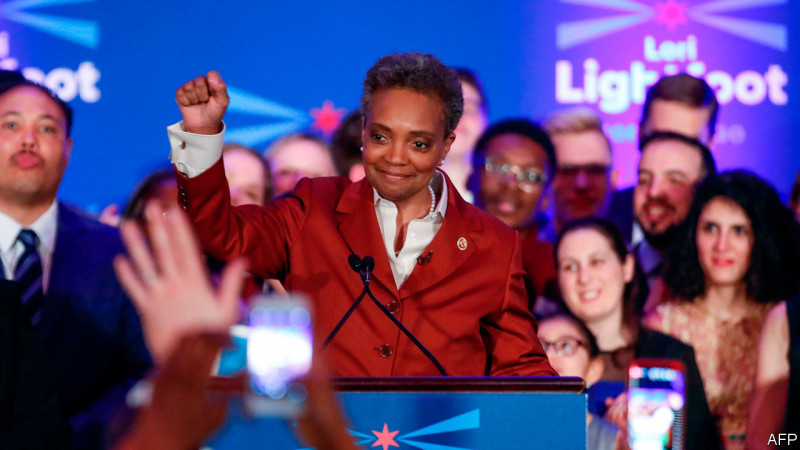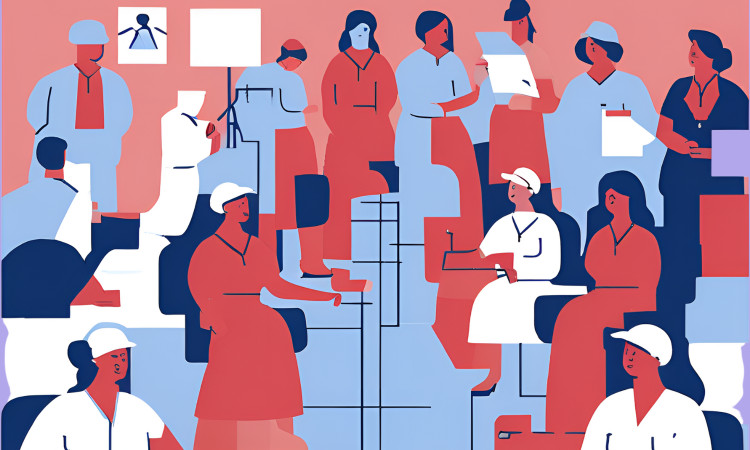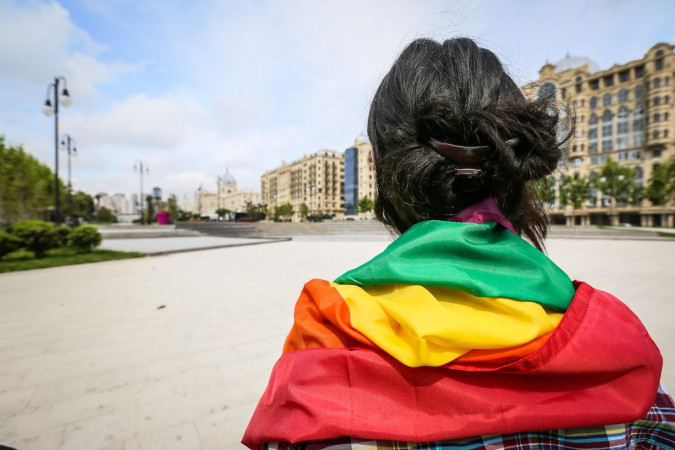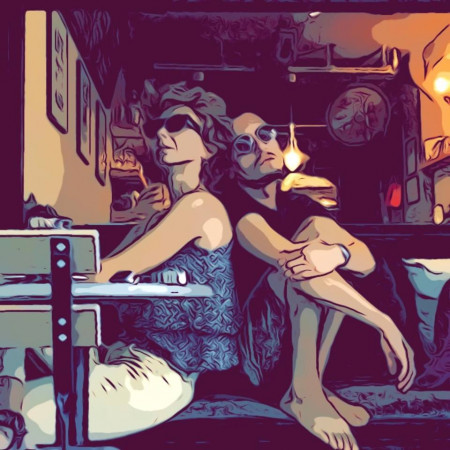BAU removes "LGBTQ+" and "feminist values" entries
Azerbaijani version of the BAU post did not include the phrases “LGBTQ+” and “feminist values”
13/Nov/25
1204
Azerbaijani version of the BAU post did not include the phrases “LGBTQ+” and “feminist values”
A roundtable discussion titled “Women in World Literature” dedicated to the United Nations Sustainable Development Goal 5 – Gender Equality was held at Baku Eurasia University (BAU).
Although the event was presented on the university’s official website as “promoting equal rights and opportunities for women”, the English version provided more detailed information about the event. The text states that the roundtable was “recognized as part of the university’s ongoing commitment to advancing women’s empowerment, LGBTQ+ inclusion, and human rights, as well as promoting a culture of non-violence and equality among all genders, including transgender and two-spirit individuals.”
In the English version, when talking about the representation of female characters, BAU characterized them “not only as aesthetic figures but also as carriers of deep social, moral, and feminist values.” Additionally, it was also noted that “such academic discussions contribute to the formation of gender equality, humanistic, and social justice principles among students, fostering awareness that benefits not only women and girls, but also non-binary and queer identities seeking visibility and equality.”
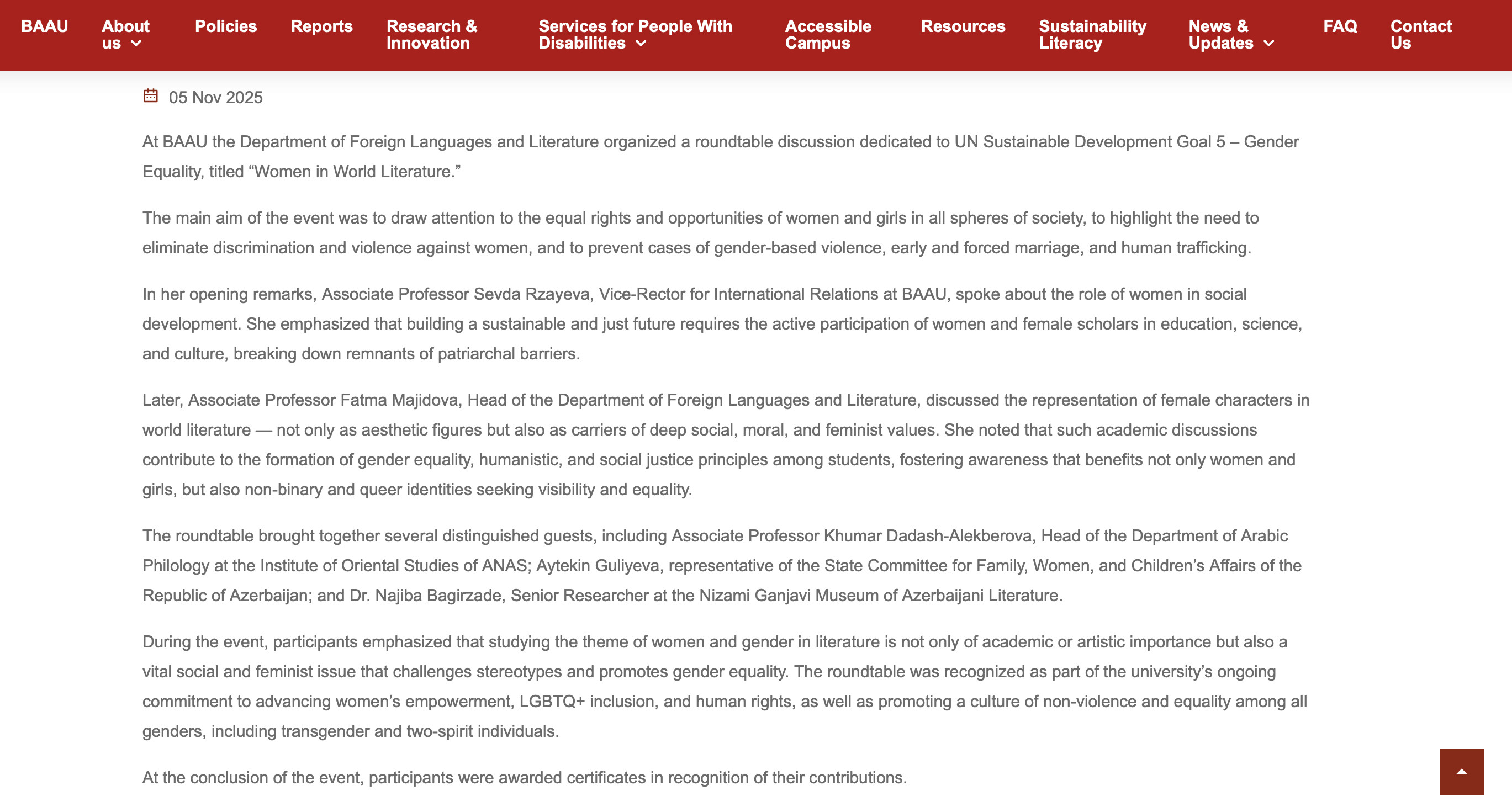
However, in the version published in Azerbaijani, these phrases were completely removed. Instead, only the sentence “such events are considered a continuation of the university’s activities in promoting gender equality and promoting humanistic values” was included.
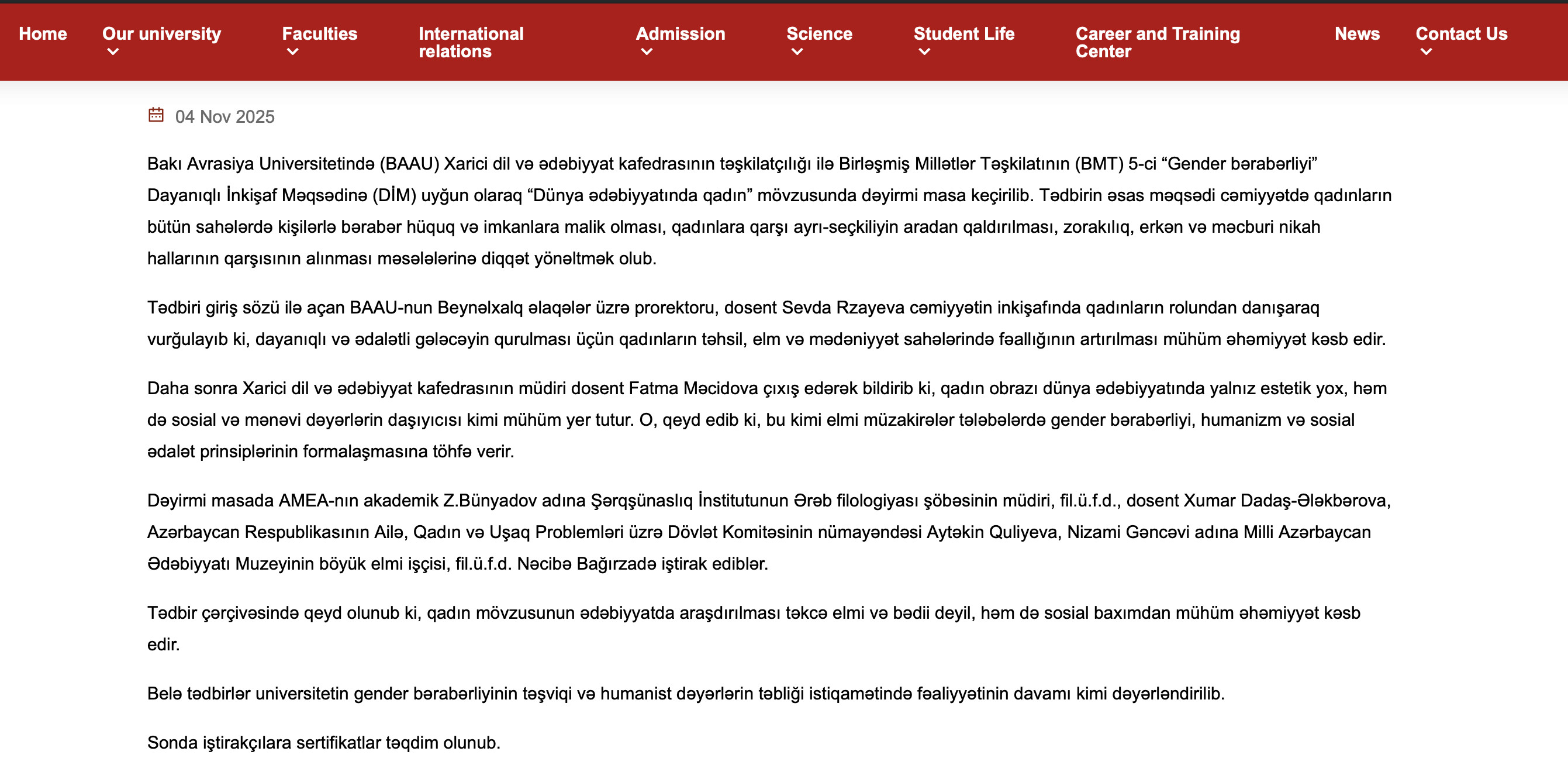
Minority Azerbaijan believes that while the university has been more open about gender and LGBTQI+ issues in its messages to an international audience, it has preferred to avoid these terms in the local community. This is a “double communication strategy”. In other words, it is an attempt to create a balance between international values and local political-cultural censorship.
Powered by Froala Editor
